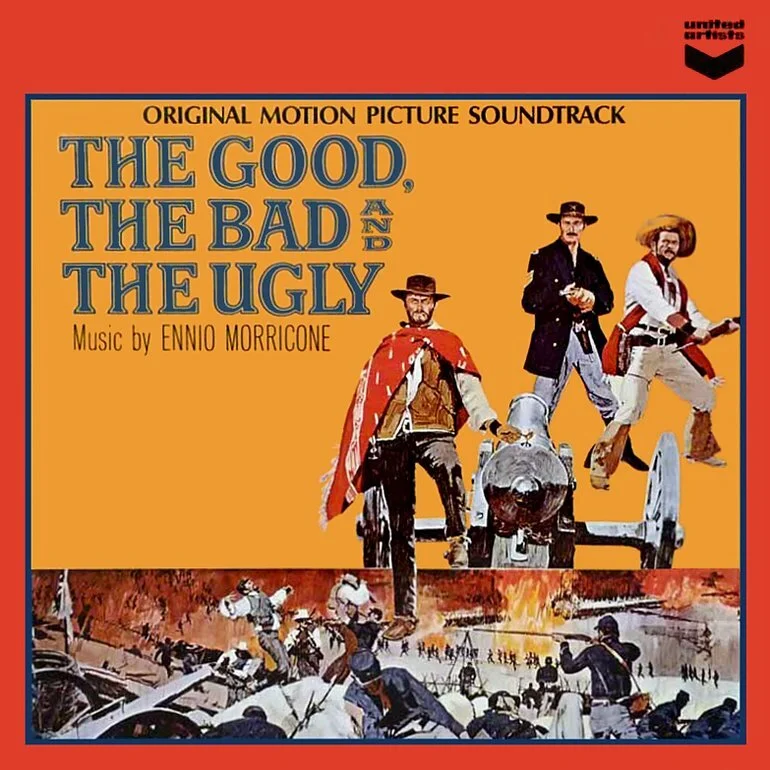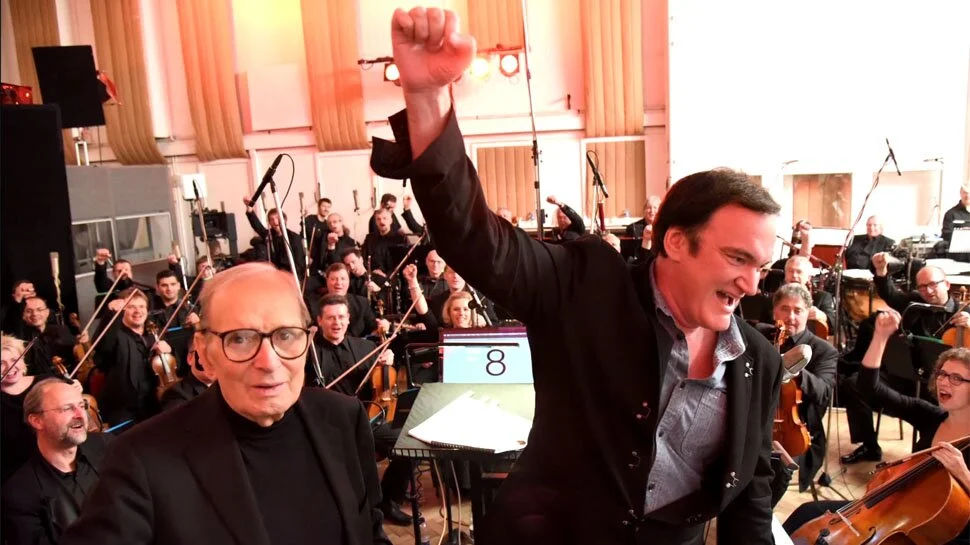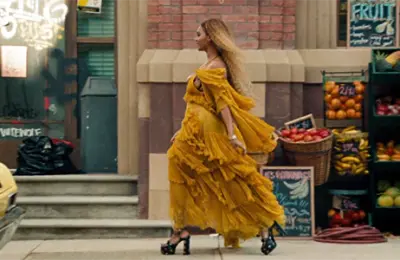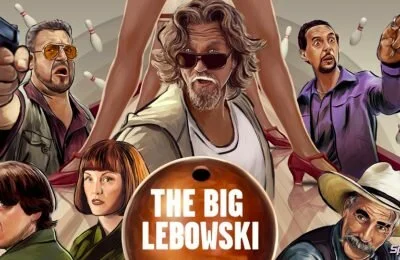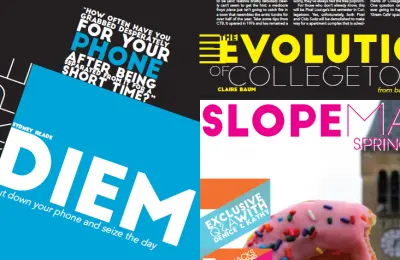By: Izzy Pottinger
The Hateful Eight is showing Thursday – Friday April 14 and 15 at 9:30, and Saturday April 16 at 9:00 at Cornell Cinema. For advance tickets, go to the tickets website here.
When you go to see The Hateful Eight at the Cornell Cinema this weekend (Thursday, Friday, and Saturday), You’ll get to hear an award winning score by the legendary composer Ennio Morricone. This ancient music sage doesn’t score those types of movies much anymore, and I wanted to get the scope from a man who would know a heck of a lot more about music in general, Music Professor David Yearsley. Not only does he have very high rating on Rate Your Professor, he’s a fantastic writer and a wonderful conversationalist. Here’s our chat:

CornellCAS via Twitter
Izzy: Can you explain to me what musicology is real quick? What does a musicologist do?
Yearsley: In academia it’s never just about seeing, reading, or performing something. You seek to understand. Where would we be without great writing about music, great criticism on music? Along those lines, I look at the historical context for musical repertoires and try to understand that music’s resonance in its own time and in ours. We can listen to Bach’s B-minor mass today and be moved by it. Understanding that dialogue between past and present is enriching, at least to me.
Izzy: If I listen to a Bach piece right now, and you listen to that same Bach piece, what would be different between our reactions?
Yearsley: Well, we all listen for different things, music moves each of us in different ways . The music we listen to, especially when we are teenagers, shapes us in fundamental ways, not just our musical taste but our personality.
Izzy: Wait, what kind of music did you listen to when you were a teenager?
Yearsley: (laughing) Bach mostly, but lots of Charlie Parker, Dexter Gordon. Baroque and bebop. My sisters listened to rock music, the Stones, The Police, that kind of stuff. I inhaled that, too, like so much second-hand smoke.
Izzy: So I’m a cool teen right now, will this music haunt me?
Yearsley: [Laughs ominously]
Izzy: Let’s talk Westerns. I saw The Good, The Bad, and The Ugly recently and OHHH MY LORD did I recognize that theme song. It was insane-
Yearsley: [nods vigorously] It’s become iconic.
Izzy: Yeah, Yeah. It’s become iconic! It integrated itself into the culture so much that I had never seen the film and knew how it went by heart. How does that happen to a score?
Yearsley: Well, the movie was enormously successful, an early high point in Clint Eastwood’s career. The music contributed hugely to the film’s enduring status. The score is unique and utterly compelling. The themes can also dislodge themselves from the characters and be enjoyed just as music. It can stand alone — hence the many concert performances and various recorded versions of the soundtrack— but the music really comes into its own when heard along with the moving images.
Izzy: [Ennio] Morricone is 87, and Hateful 8 is his first Western score in 32 years, what do you think drew him to it?
Yearsley: Ugh, the Hateful Eight. I wrote a review of the soundtrack of the film.
Izzy: Same. I said I loved it.
Yearsley: Oh, I didn’t like it much, partly because of the score.
Izzy: Oh really? Tell me why!
Yearsley: Morricone and Tarantino would appear to have a complex relationship. Morricone wrote a classic, quite retro song for Django Unchained. That song is called “Ancora qui” and was nominated for an Oscar. But after the picture was released, Morricone lambasted Tarantino and claimed that the director knew nothing about film music, even though Tarantino had praised him to no end. Obviously, given their collaboration on Hateful Eight, there was a rapprochement, likely facilitated by a torrent of American cash sluicing into the Italian maestro’s bank account. Yet, Morricone’s score for Hateful Eight is not a grandiose, never able to find the majesty and bite of his work from the 1960s for Sergio Leone.
Izzy: Yeah, I read somewhere that Tarantino classifies the film as a Western and Morricone doesn’t. So he tried not to score it like he did his past westerns.
Yearsley: The Morricone score isn’t really given the space to breathe since most of the action takes place in the cabin. Morricone is at his best in the epic mode, witness Once Upon a Time in the West or The Mission or indeed, The Good, the Bad, and the Ugly. The overture to The Hateful Eight gives Morricone some of that space as we survey the wintery Western landscape. Tarantino craved a score from his hero but the result is, in my view, lacking something. It’s often hemmed in, almost trivial.
Izzy: This and Django are the only Tarantino movies that have an original score. What does that pastiche kind of scoring do that original scoring can’t?
Yearsley: The symphonic score comes out of nineteenth-century stage melodramas and operas and was imported directly into silent films, so in effect the soundtrack is a residue of that tradition, which is a bit strange if you think about it. Why should an orchestra play when you look at a mountain range in Wyoming? But there’s something so cinematic about it. So dramatic. Even the use of pop music has antecedents in silent films. The musicians who performed during silent films would play snatches of pop tunes to accompany a character or given plot point. It’s all up to the filmmaker to decide what works better, and I guess now that Ennio has that Oscar on his trophy case it all worked out, if you consider these kinds of industry-driven accolades important.
Izzy: Thanks for coming out and letting me pick your brain!
Yearsley: No problem, thank you!



